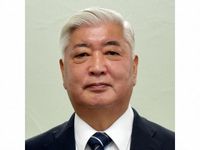The Trump administration is considering halting the strengthening of US forces in Japan as part of its broader government spending cuts, raising critical questions about Japan's defense strategy and reliance on American military support. This potential change, reported by NBC and others, could significantly impact the future of US-Japan relations.
Currently, the reorganization of the US Forces Japan command into a 'Joint Command' is on the table, an initiative previously agreed upon by the Kishida and Biden administrations. The goal of this restructuring was to enhance the command and control functions between the US military and Japan's Self-Defense Forces, which are intended to strengthen the military alliance between the two nations.
Japan’s Defense Minister Kihara addressed the concerns surrounding this development in a press conference on March 21, 2025, asserting that, "It is necessary to continue efforts to further strengthen the deterrence and response capabilities of the Japan-US alliance." He emphasized the importance of maintaining robust defense ties, especially in light of shifting geopolitical dynamics.
Meanwhile, officials from Japan's Ministry of Defense underscore that enhancing Japan's own defense capabilities is critical for building trust within the alliance. This sentiment reflects a growing acknowledgment that Japan needs a more independent and capable military posture, rather than relying solely on US forces.
This isn't the first time US military commitments in Japan have faced scrutiny. Historical records reveal that from 1972 to 1973, the US government considered consolidating its Marine bases and even transferring the Marine Expeditionary Force to Tinian. However, the Japanese government intervened to retain these bases in Okinawa, a decision with lasting ramifications for the region.
The complexities of US-Japan relations cannot be overlooked. Since the San Francisco Peace Treaty and Japan-US Security Treaty went into effect over 73 years ago, Japan has relied heavily on the US's military umbrella, often referred to as the "nuclear umbrella." The reliance on this security arrangement has fostered a perception that Japan's own diplomatic agency has been neglected.
Critics of this reliance, particularly in Okinawa, view the proposed military enhancements as a pathway to increased militarization, which could lead to a heavier base burden on local communities. They argue instead for a shift in Japan's foreign policy that pivots away from being overly dependent on the US, advocating for a more balanced approach reflecting the realities of the Asia-Pacific region.
As the Trump administration navigates these complexities, the potential halt on military enhancements could trigger a reevaluation of Japan's defense strategies. This presents an opportunity for Japan to define its own security measures and diplomatic missions more explicitly, relying less on a singular focus on US support.
With calls for a renewed emphasis on peace diplomacy, detractors of the current strategy are urging the government to prioritize defense methods that root themselves in the ideals of the nation’s pacifist constitution and emphasize international dialogue.
The stakes are high, given the evolving geopolitical landscape and increasing, often aggressive, maneuvers by neighboring countries in the region. If the US does indeed stop enhancing its military presence in Japan, some fear it may embolden adversaries and destabilize long-standing arrangements meant to discourage military aggression.
As Japan contemplates its role in maintaining peace in the region, both government and military officials must be prepared to recalibrate their strategies. The outcome of these discussions and the potential redefining of the Japan-US alliance will surely reflect Japan’s growing aspirations as a sovereign nation committed to pursuing peace.
Ultimately, with the Trump administration's proposed cuts to US military spending in Japan as a backdrop, the Japanese government faces a pivotal moment. The historical ties and reliance on US military might are evolving, potentially providing Japan the chance to carve out a more independent foreign policy—one that seeks stability not through military posture alone, but through diplomatic engagement and broader regional cooperation.


